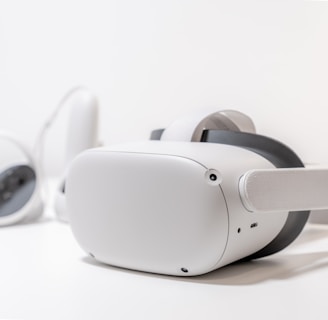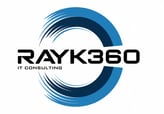AI-Infused VR: The Future of Education is Immersive and Intelligent
The education sector is on the brink of a revolution, with AI and VR transforming traditional learning into immersive, adaptive experiences. From virtual field trips to AI-powered personalized learning and skill-based training, the future of education is becoming more engaging, inclusive, and accessible. Discover how these cutting-edge technologies are reshaping classrooms worldwide.
Ray
1/22/20252 min read


The Future of Education: AI-Infused VR Reshaping Learning
Education is undergoing a profound transformation, driven by the convergence of artificial intelligence (AI) and virtual reality (VR). As these technologies continue to evolve, AI-powered VR is set to redefine how students learn, educators teach, and institutions operate. The classroom of the future is immersive, intelligent, and personalized.
AI and VR: A New Era in Education
The combination of AI’s data-driven intelligence and VR’s immersive experiences is revolutionizing education by making learning more interactive, personalized, and effective. Here’s how AI-infused VR is reshaping the education landscape:
1. Immersive Learning Experiences
Traditional learning methods often rely on textbooks and passive lectures. AI-infused VR introduces:
Virtual field trips, allowing students to explore historical landmarks, outer space, or the deep ocean without leaving their classrooms.
Interactive science experiments, where students can conduct virtual chemistry or physics simulations safely.
History and cultural immersion, enabling learners to experience historical events as if they were there.
2. Personalized and Adaptive Learning
AI-driven VR tailors educational experiences to individual learning styles by:
Analyzing student performance and adjusting lesson difficulty accordingly.
Providing real-time feedback through AI tutors that identify knowledge gaps.
Creating customized learning paths, ensuring students' progress at their own pace.
3. Skill Development and Vocational Training
Hands-on learning is essential for many professions. AI-infused VR enhances skill acquisition by:
Simulating real-world job scenarios, from medical procedures to mechanical repairs.
Training students in soft skills, such as public speaking and negotiation, through AI-driven role-playing.
Providing AI-generated coaching, where virtual mentors guide students through complex tasks.
4. Remote and Inclusive Education
AI-powered VR is breaking barriers in education by:
Enabling remote learning, where students can attend virtual classes with immersive engagement.
Supporting special education, offering tailored experiences for students with learning disabilities.
Making education more accessible, ensuring students from underserved regions have access to high-quality learning experiences.
Challenges and Future Prospects
Despite its potential, AI-infused VR in education faces challenges:
High implementation costs, though expected to decline as technology advances.
The need for teacher training, ensuring educators can effectively integrate these tools.
Data privacy concerns, requiring robust security measures to protect student information.
Conclusion
AI-powered VR is revolutionizing education, making learning more engaging, personalized, and accessible. As technology continues to evolve, we can expect classrooms to become more immersive, intelligent, and globally connected. The future of education is here—interactive, adaptive, and limitless.


